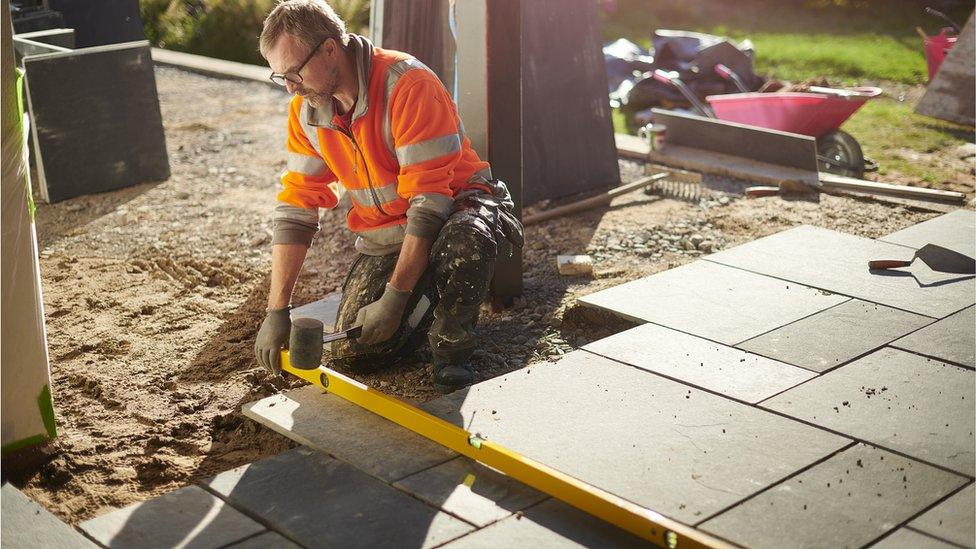Construction: 'I still wear make-up but lay bricks for a living'
- Published
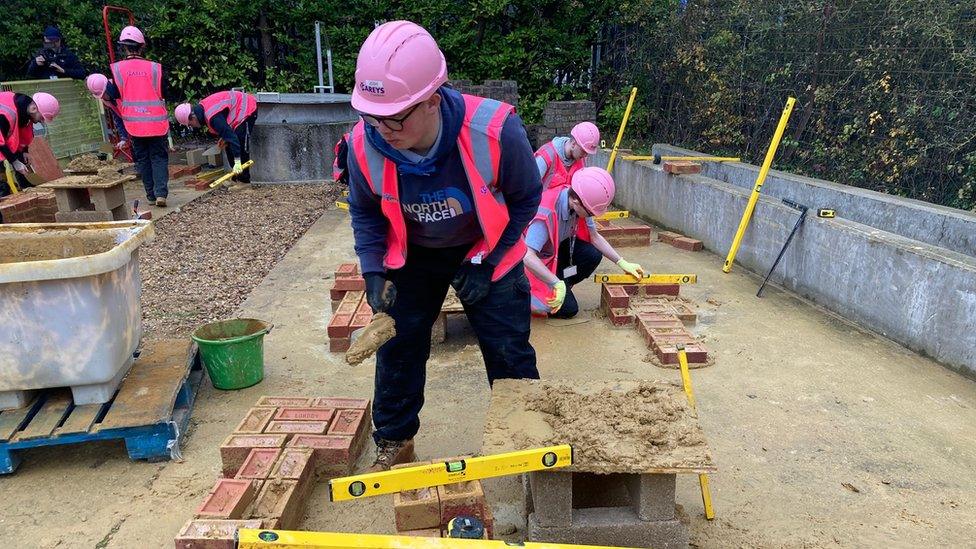
There is a reported 40,000 vacancies within the construction industry, which new courses and apprentices hope to fill
The construction industry is warning of shortages of skilled workers due to Brexit and rising demand. Milton Keynes College runs training courses which aim to tackle that, but will it be the solution to the problem and how will the next generation of builders be encouraged to enter the industry?

'Bricklaying is something I love'
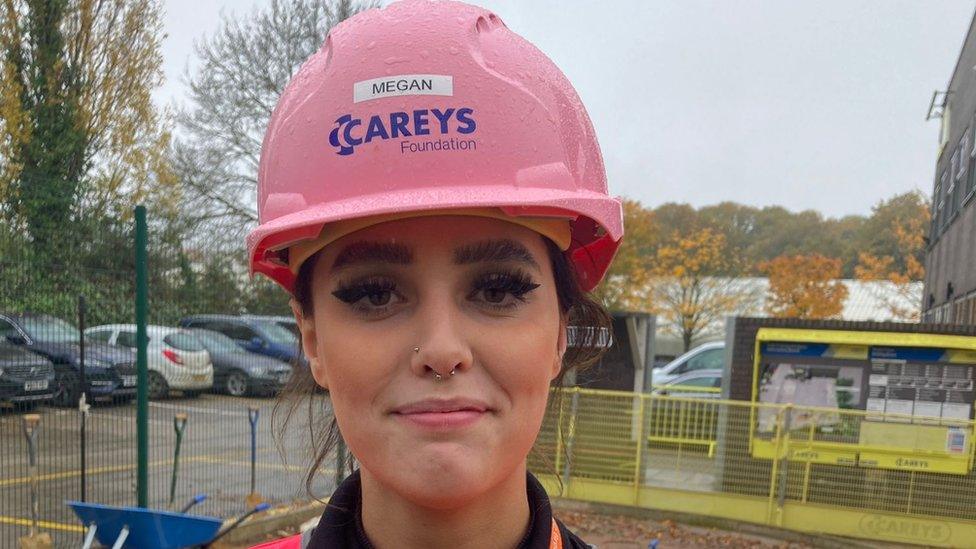
"What have you got to lose?" is the advice Megan would give to young people looking at construction courses
Megan is a bricklaying technician and training to become a teacher on construction courses at Milton Keynes Collage.
"I was doing health and social care but it wasn't for me at all. I really didn't think that was my career path," she says.
"Some of the people I knew were doing bricklaying at the time, I said 'OK, that looks pretty cool - I would love to do it'.
"I told my father I was going to do bricklaying and his first reaction was 'are you sure?'."
She says after six months on the course she knew she loved it and went on to complete the two-year course.
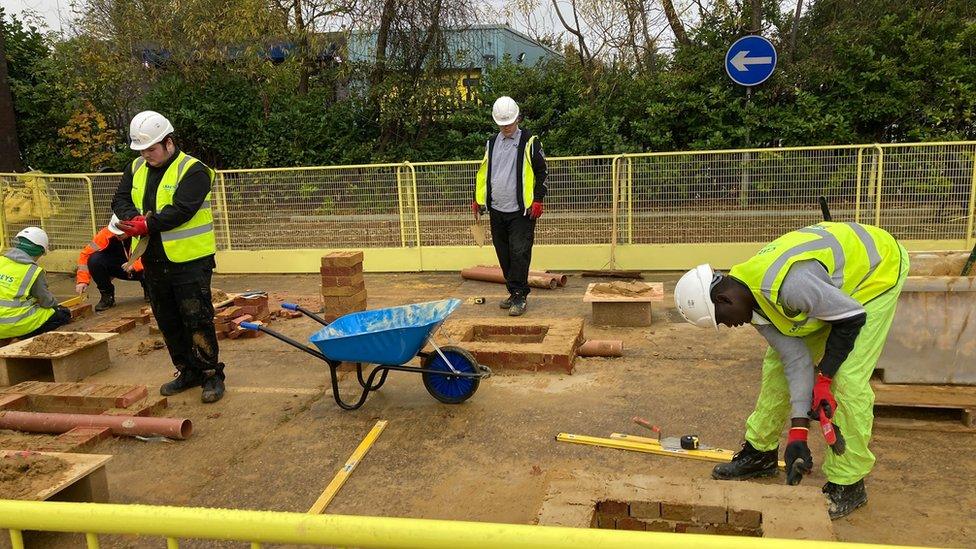
Milton Keynes College offers bricklaying, carpentry and other construction courses
Megan, who did not want to give her surname, says young people, especially women, should consider the construction industry because "you've always got opportunities".
She says: "I think women have this mindset that on a construction site it is very male dominated, and it is, but you can do the same as a man.
"If you are a make-up artist you can lay a brick. I still get my nails done, I still wear my make-up, but I lay bricks for a living.
"Some of my friends ask 'why do you do it?'.
"It's because I love it."

'No teacher-student divide'
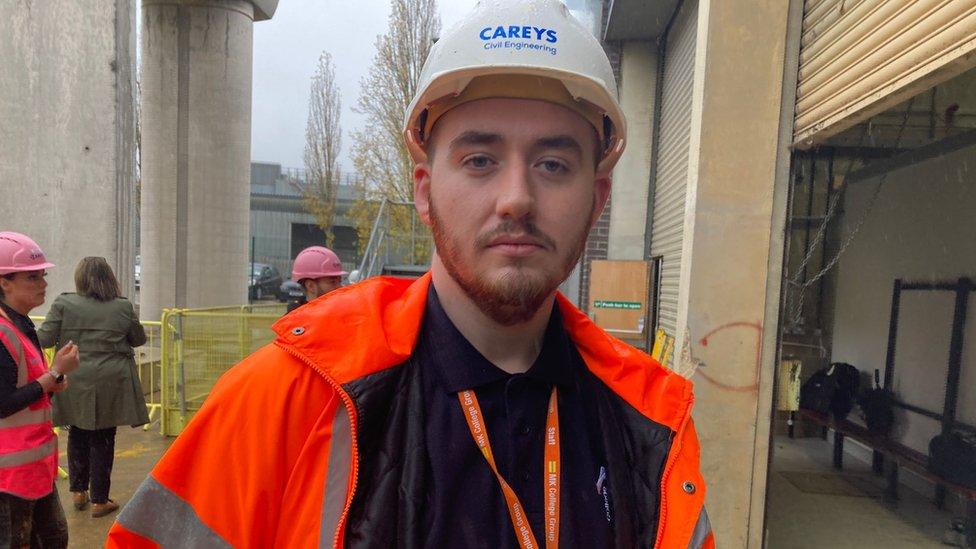
Teacher Jordan Maxey wants to inspire the next generation of construction workers
Jordan Maxey is the course team leader for apprenticeships at the college.
"I turn around to my students and say you are no longer classmates - you are colleagues," he says.
"It gives them this idea that they are now in the industry. It's straight from school into 'this is what my future life will look like'."
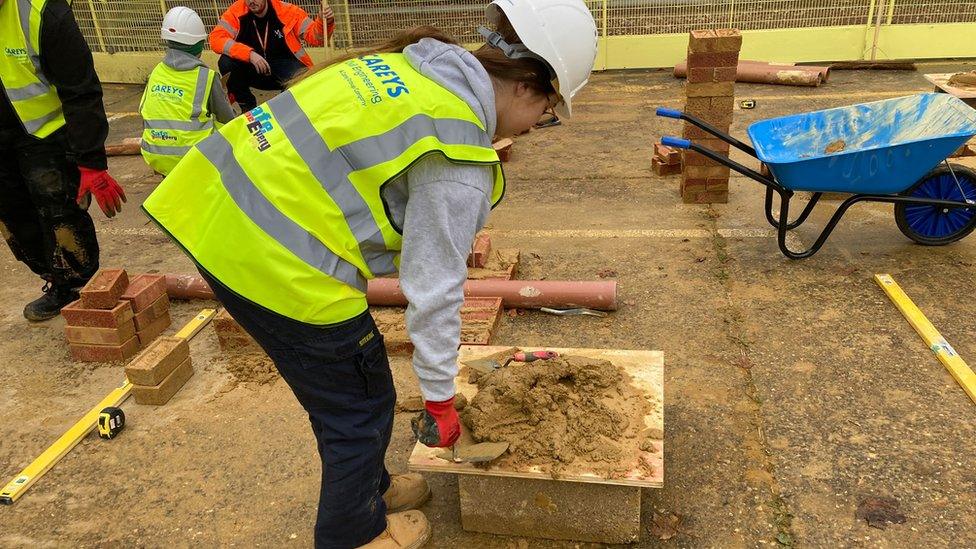
Industry experts say the skills shortage is partly caused by a rise in demand for home improvements, house building and government projects
Mr Maxey, a professional bricklayer as well as a teacher, believes it is about showing students how the industry works, alongside teaching them the skills.
He says: "The way I want to teach it, I tell them how to do it, I demonstrate it, we do it together, then I leave them and I say 'you are going to redo it yourself'.
"It's the same way you would do it in the industry, there's not a divide as a teacher and student, it's more like 'it's a team now'."

'It won't solve the problem straight away'
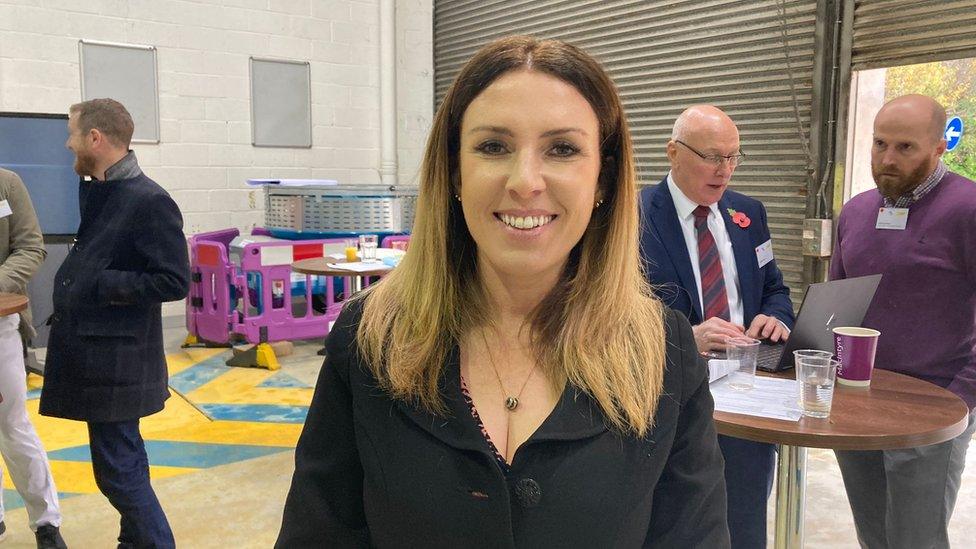
Maddy Donaghy, from Careys, says apprenticeships are the best way of bringing in new skilled workers
Milton Keynes College has partnered with a building firm Careys to set up a new groundworker apprenticeship.
The college will take over the ground floor of the company's local office for classrooms and use their yard for the practical work.
Maddy Donaghy from Careys says: "The idea is we will begin to feed a talent pipeline into the region where it is needed.
"There is a huge shortage of new entrants into the industry. This skills shortage isn't new, but it is rising."
She believes the construction industry has not "been great at going in and enticing new entrants into the industry or even showcasing the careers that are available".
But Ms Doughy hopes new apprenticeships and work placements "can show how progressive the industry can be".
She says: "These entrants aren't going to the solve the problem straight away, but within two to five years we will see a flow of new entrants into the industry."

'Less and less people coming through'
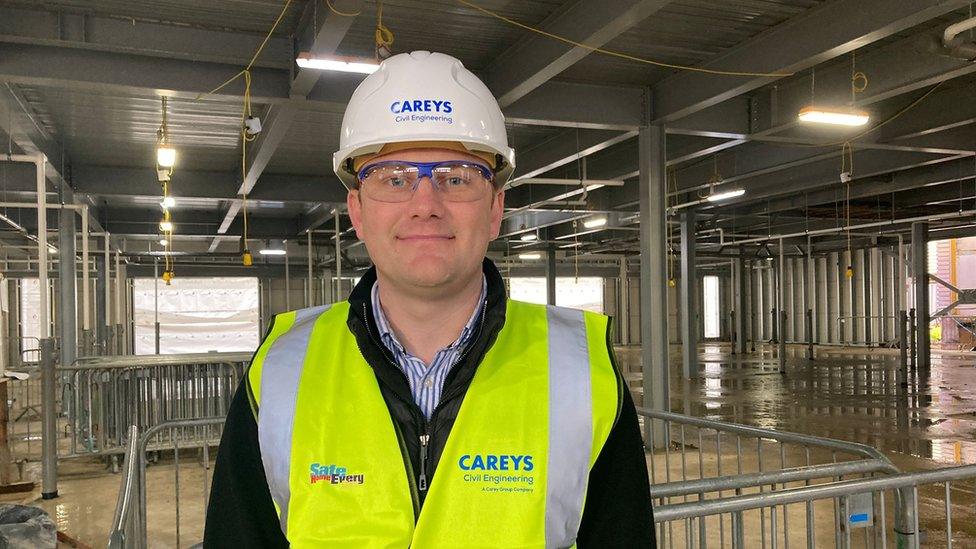
Project manager, Christopher Mack, says apprentices are incorporated into the team working on construction sites
Apprentices will also get practical experience on Careys' building sites, such as Milton Keynes University Hospital where it is carrying out groundworks.
Christopher Mack, the project manager, says: "The apprentices have really helped us with this project.
"They come in and we try and teach them the skills they need and they've helped install the drainage and the pipework."
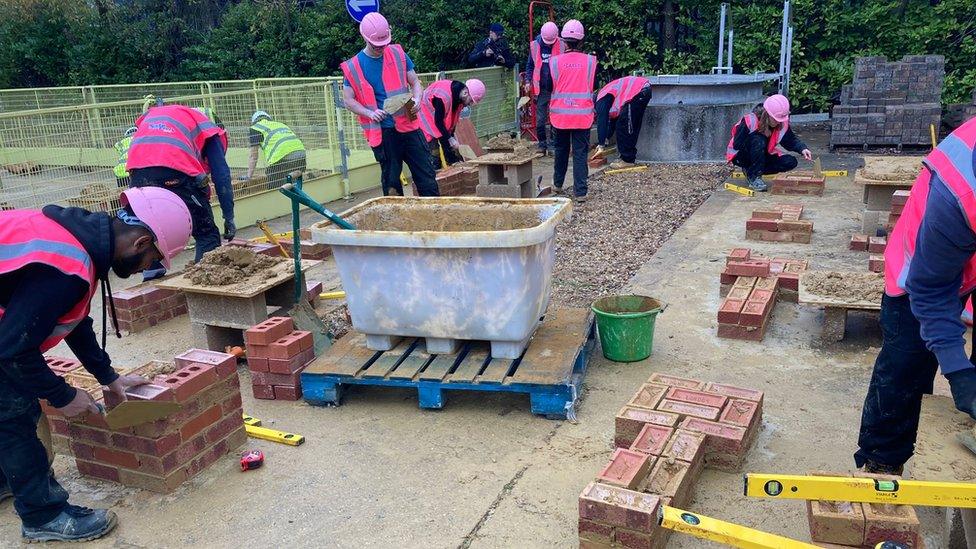
The level two groundworker apprenticeship takes 15 months to complete
Some in the construction industry say there have been problems since Brexit.
Richard Harpin, chief executive of Homeserve, whose company also operates Checkatrade, has said skills shortages are being caused by "mainly EU migrant workers going home".
In response, the government said its "plan for jobs" was helping people "retrain, build new skills and get back into work" and firms should invest in the domestic workforce rather than rely on labour from abroad.
Mr Mack says he hopes the apprentices in Milton Keynes will help fill the shortage of building workers.
He says: "Since I've been working the construction industry I've seen less and less people coming through.
"Now we are seeing the next generation. Previously a lot of roles were filled by people from the EU, but that is being replaced by homegrown talent.
"Going forward we need to plug that hole and apprenticeships are the best way to do that."

Find BBC News: East of England on Facebook, external, Instagram, external and Twitter, external. If you have a story suggestion email eastofenglandnews@bbc.co.uk, external
Related topics
- Published1 July 2021
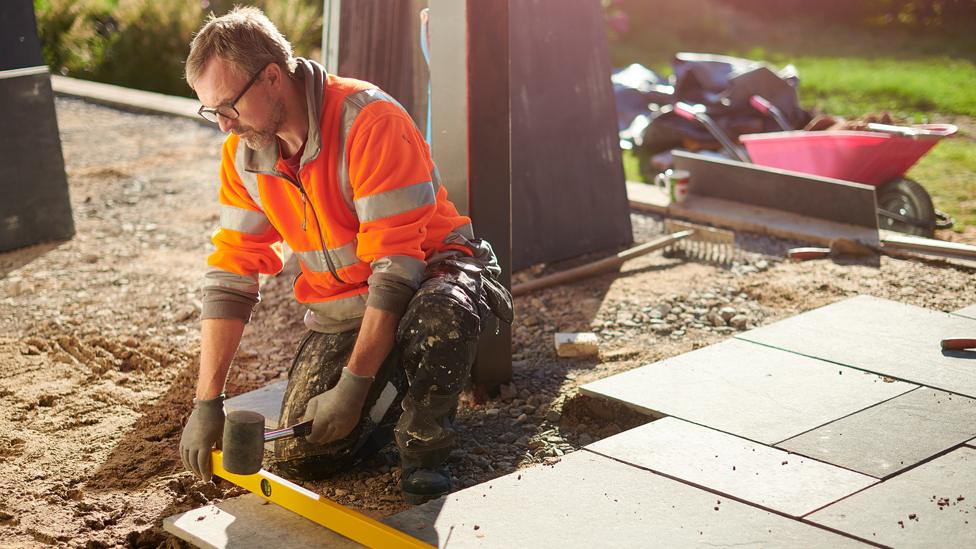
- Published4 June 2021

- Published26 May 2021
